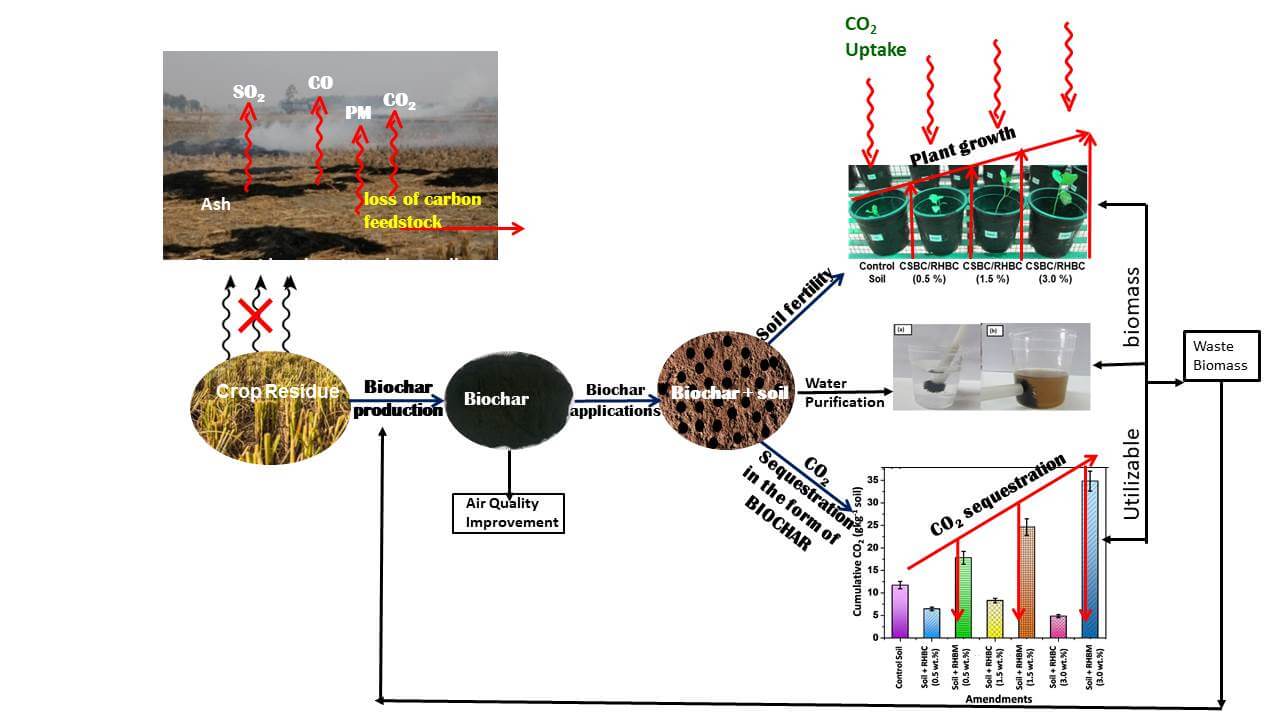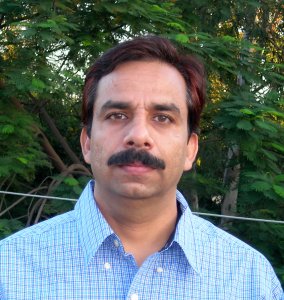Zastosowanie biowęgla w aplikacjach środowiskowych

06 06 2024
Kategoria: Seminarium IM
Serdecznie zapraszamy na seminarium Instytutu Mikrobiologii, które odbędzie się w poniedziałek 10 czerwca o godz. 14.00 w sali 102B. Będziemy mieli przyjemność gościć prof. Dinesh Mohan’a ze Szkoły Nauk o Środowisku na Uniwersytecie Jawaharlala Nehru (New Delhi, INDIE), który przedstawi seminarium zatytułowane „Zrównoważony biowęgiel: Korzyści dla środowiska i zastosowania”.
Abstract:
Pyrolysis is very simple and cost effective for converting biomass into biofuel and energy. Biomass pyrolysis covers a range of processes. Biochar is the major product of biomass slow pyrolysis and a byproduct of biomass fast pyrolysis. Biochar is “a fine grained charcoal high in organic carbon and largely resistant to decomposition and produced from pyrolysis of plant and waste feedstocks”. Agricultural crops/residues can easily be converted into biofuels and byproduct bio-char. Biochar, is being considered for balancing carbon emissions and restoring or improving soil fertility. Biochar can be burned or sequestered into soils or used for water filtration. Its long-term sequestration duration, while variable, can exceed centennial timescales while simultaneously improving soil fertility and structure and possibly reducing fertilizer run-off. These benefits have attracted increasing multidisciplinary interest in science and engineering.
Biochar has a potential to remediate contaminated water and immobilized soil contaminants. Various options including modification of production conditions, additives use before and/or after slow/fast pyrolysis and oxidative treatment can be used for tailoring of biochar. A number of biochars were prepared by fast and slow pyrolysis of agricultural byproducts successfully applied for environmental management including (a) remediation of organic (phenols, dyes, pharmaceuticals) and inorganic (chromium, cadmium, lead, arsenic, fluoride, nitrate) contaminants from water (b) improving soil fertility and (c) carbon sequestration as a strategy for climate change mitigation. The adsorbed contaminants were recovered and biochars were successfully regenerated and reused through several cycles. The use and cost effectiveness of biochar adsorbents in water quality applications is strongly influenced by biochar development conditions. Biochar addition will improve soil health by increasing (a) Nutrient Availability (b) Microbial Activity (c) Soil Organic Matter (d) Water Retention (e) organic carbon (f) cation exchange capacity and (e) Crop Yields. On the other hand, biochar addition to soil decreases (a) Fertilizer Needs (b) Greenhouse Gas Emissions (c) Nutrient Leaching and (d) Erosion. This lecture will delve into the innovative development of biochar and explore its wide-ranging environmental applications.

Dinesh Mohan is a professor in the School of Environmental Sciences at Jawaharlal Nehru University, New Delhi, INDIA. He is an Elected Fellow of Royal Society of Chemistry, London and National Academy of Agricultural Sciences, India. He is also an adjunct professor at Chemistry Department, Mississippi State University, USA. He was a visiting professor at Czech University of Life Sciences Prague, Czech Republic, and an adjunct professor at University of Southern, Queensland, Australia. Dinesh Mohan earned his Master’s and Ph.D. degrees from the esteemed Indian Institute of Technology Roorkee. His academic journey also includes valuable experiences as a Postdoctoral Associate at both Penn State University and Mississippi State University. Prof. Mohan has made remarkable strides in environmental sciences, particularly in water treatment and management, and the innovative use of biochar for climate change mitigation and soil improvement. His sustainable materials effectively eliminate a wide range of contaminants from water, including heavy metals, pesticides, and emerging pollutants like PFAS. Notably, his development of cost-effective biochars addresses the water treatment challenges prevalent in India. Mohan’s pioneering “3-D” approach to assessing biochar’s adsorbent potential has garnered widespread recognition. In a recent breakthrough, he has pioneered a sustainable technology designed to effectively combat the issue of stubble burning in India.
He published >170 research papers with a total citation of >51553 & h factor: 86 in the high impact factor Journals. He has also authored 3 books. In addition, two patents have been granted to him. He has received global recognition as the Clarivate Highly Cited Researcher in 2014, 2015, 2016, 2017, 2018, 2019, 2020, 2021, and 2022. In addition to his extensive accomplishments, Professor Mohan has garnered a multitude of esteemed academic and professional awards. These accolades include the 2007 Scopus Young Scientist Award and the Hiyoshi Environmental Award in 2009. He was also recognized as a Research Giant by the University of Southern Queensland, Australia, in 2017. Furthermore, he was honored with the Clarivate Analytics India Research Excellence Citation Awards in 2019, received the prestigious Dr. S. S. Deshpande Memorial Award in 2017, and holds the distinguished title of Outstanding Scientist, conferred upon him by CSIR, India.
